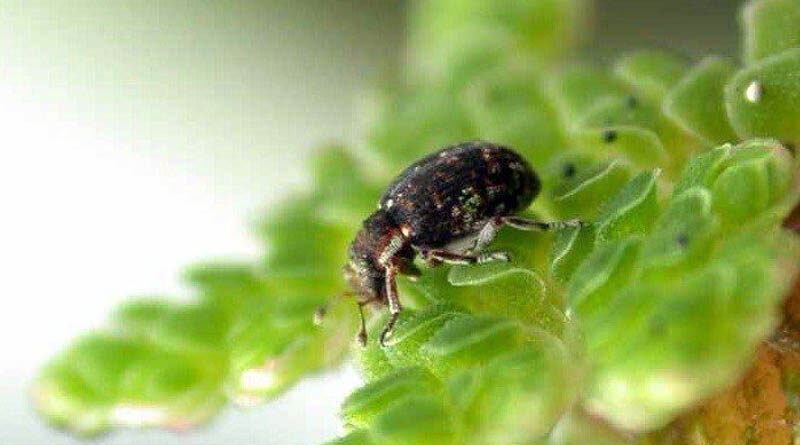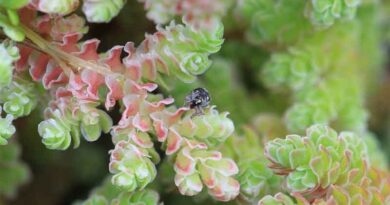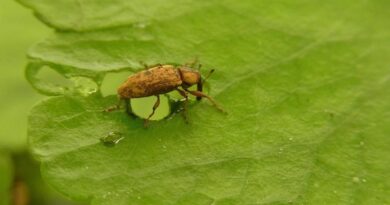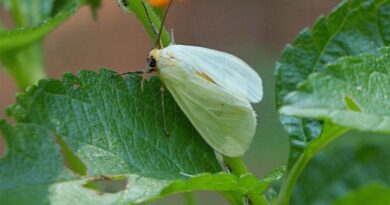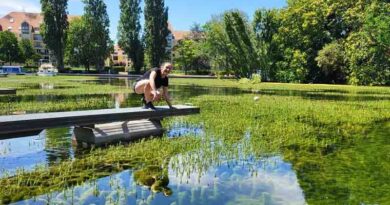Greater awareness needed to increase uptake of invasive plant biocontrol in Europe, scientists say
07 December 2022, Europe: A team of international scientists have conducted research which reveals that European Union professionals know less about the biological control of invasive plants than their counterparts in other parts of the world.
To date, there have been over 500 biological control agents released against at least 220 invasive alien plant species in 130 countries. However, despite a long list of high potential European weed targets, the technique of using biological control agents has largely been overlooked on the continent until very recently.
The researchers suggest that a lack of successful examples in Europe and complex procedures could be hindering the biological control of weeds such as Australian swamp stonecrop (Crassula helmsii) in the UK and Acacia longifolia – one of the worst invasive plants in Portugal.
CABI’s Dr Richard Shaw, Senior Regional Director, Europe and The Americas, was among the scientists who published their findings in the Journal of Environmental Management. They included those from the Centre for Functional Ecology (both from Escola Superior Agrária de Coimbra and University of Coimbra), Portugal, Aalto University, Finland, Leiden University, Netherlands and Koppert Biological Systems.
The scientists conducted an online survey among over 700 people professionally engaged with managing the natural environment, of which approximately half were from Europe (EU) and the others from outside (non-EU). The sample included respondents from Africa (mostly South Africa), North America (mostly USA) and Oceania (mostly Australia).
They found that respondents’ location influenced both perceptions and knowledge of biocontrol for weeds. Compared to non-EU respondents, EU professionals showed less appreciation for BC (e.g., regarding safety, sustainability, and cost-effectiveness), and perceived it as a riskier method, particularly in the case of practitioners and researchers.
While a much higher proportion of non-EU respondents were correctly aware of the presence/absence of biocontrol in their own countries and identified successful examples of biocontrol accurately, both groups of respondents were similarly aware of unsuccessful biocontrol examples. This included biocontrol agents against animals, stressing the bias of EU respondents towards examples of biocontrol failure.
Lead author Dr Hélia Marchante, of the Centre for Functional Ecology/Escola Superior Agrária de Coimbra, said, “In general, our findings suggest that knowledge of biocontrol is higher amongst non-EU than EU respondents.
“Non-EU respondents had a remarkably accurate understanding (99%) of whether biocontrol was used in their own country, while EU respondents not only had lower knowledge, but almost one in five considered erroneously that weed biocontrol was used in their country.
“In addition, our study highlights that while the majority (ca. 85%) of non-EU members know of successful examples of biocontrol and are indeed able to name them correctly (in 88% of cases), only about half of the EU respondents could give an example of successful biocontrol, of which one-third were incorrect.”
Based on their findings, the researchers suggest that an awareness campaign could promote safe and successful examples of weed biocontrol as well as increase general knowledge on the practice.
They also argue that any such campaign should also include information about the sustainability and higher cost-benefits of biocontrol compared to other control methods and to clarify and emphasise the rigorous safety testing procedures and risk-assessment requirements.
Dr Marchante added, “If uptake in Europe is to emulate that of the rest of the world, then there is a need to generate a greater awareness with a suggested focus on successful examples and the stringent safety measures and track record of modern weed biocontrol.
“For those countries not well-versed in weed biocontrol, the Azolla weevil may provide a suitable entry point, if the weed and the agent exist in the Member State.”
Also Read: World Soil Day 2022: FAO publishes first global report on black soils
(For Latest Agriculture News & Updates, follow Krishak Jagat on Google News)

